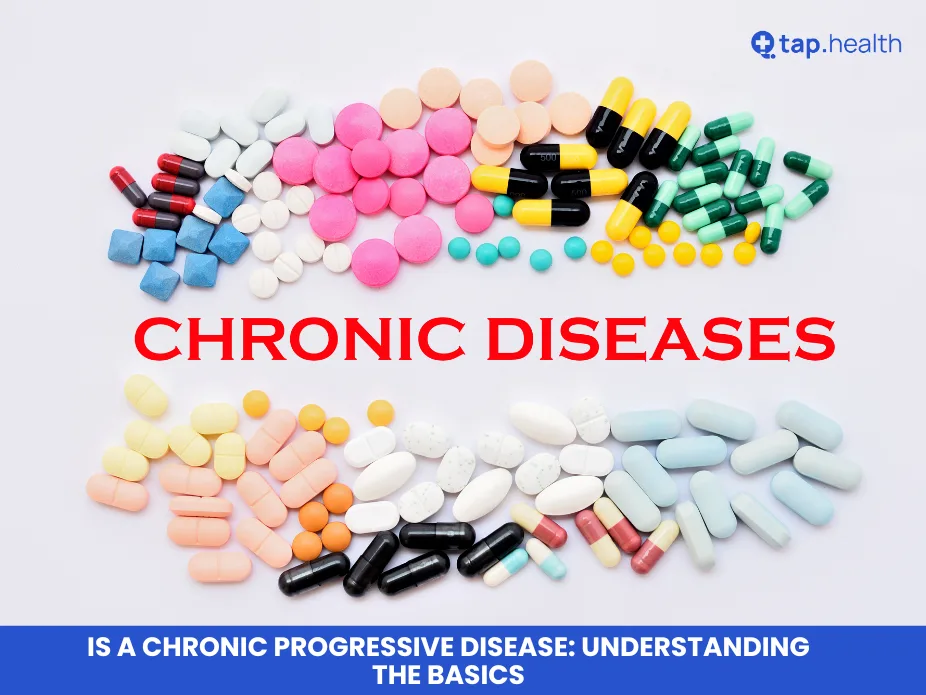Chronic progressive diseases can seem overwhelming, but understanding them can empower you to manage your health better. In this blog post, we’ll explore what chronic progressive diseases are, the types that exist, their symptoms, possible treatments, and how to navigate life with one.
What is a Chronic Progressive Disease?
A chronic progressive disease is a long-term health condition that gradually worsens over time. Unlike acute diseases, which can resolve quickly, chronic diseases often require ongoing management and care. Common examples include multiple sclerosis, Parkinson’s disease, and chronic obstructive pulmonary disease (COPD).
Types of Chronic Progressive Diseases
- Multiple Sclerosis (MS): This disease affects the central nervous system and can cause a wide range of symptoms, such as fatigue, difficulty walking, and problems with coordination and balance.
- Parkinson’s Disease: A neurological disorder that primarily affects movement, leading to tremors, stiffness, and difficulty with balance.
- Chronic Obstructive Pulmonary Disease (COPD): A lung condition that makes it difficult to breathe and can lead to respiratory failure if not managed properly.
- Alzheimer’s Disease: A form of dementia that gradually affects memory, thinking, and behavior.
Symptoms of Chronic Progressive Diseases
While each disease has its own specific symptoms, some common signs may include:
- Fatigue: A constant feeling of tiredness that doesn’t improve with rest.
- Pain: Chronic pain can occur in various parts of the body.
- Mobility Issues: Difficulty with walking, balance, or coordination.
- Cognitive Decline: Problems with memory, attention, or problem-solving.
How are Chronic Progressive Diseases Diagnosed?
Diagnosis often involves a combination of medical history, physical examinations, lab tests, and imaging studies. For example, in the case of MS, doctors may use MRI scans to look for lesions on the brain and spinal cord.
Treatment Options
While there is no cure for chronic progressive diseases, treatments can help manage symptoms and improve quality of life. These may include:
- Medications: Depending on the disease, medications can help reduce symptoms or slow disease progression. For instance, disease-modifying therapies are often used in MS.
- Physical Therapy: Helps improve strength, flexibility, and mobility.
- Lifestyle Changes: Eating a balanced diet, regular exercise, and stress management can significantly impact overall health.
Real-life Scenarios
To illustrate the impact of chronic progressive diseases, let’s consider a few real-life scenarios involving Indian names.Scenario 1: Priya’s Journey with Multiple SclerosisPriya, a 30-year-old teacher from Mumbai, was diagnosed with MS after experiencing unexplained fatigue and vision problems. Initially, she struggled with her diagnosis, but after joining a support group, she learned about managing her symptoms through medication and lifestyle changes. By incorporating yoga and a healthy diet, Priya has been able to maintain her career and enjoy her passions.Scenario 2: Raj’s Battle with Parkinson’s DiseaseRaj, a retired engineer from Delhi, started experiencing tremors and stiffness in his hands. After consulting with a neurologist, he was diagnosed with Parkinson’s disease. With the help of medications and regular physical therapy, Raj remains active in his community, participating in local events and engaging with his grandchildren.
Expert Contributions
Dr. Ananya Sharma, a neurologist based in Bengaluru, emphasizes the importance of early diagnosis and treatment in managing chronic progressive diseases. “Understanding the disease and having a supportive network can make a significant difference in a patient’s quality of life,” she says.For more detailed insights from healthcare professionals, you can visit Healthline.
Recommendations Grounded in Proven Research and Facts
- Stay Informed: Understanding your disease is crucial. Resources like the National Multiple Sclerosis Society and the Alzheimer’s Association provide valuable information.
- Build a Support Network: Connect with others who have the same condition. Support groups can offer emotional support and practical advice.
- Regular Medical Check-ups: Keep up with your doctor’s appointments to monitor your condition and adjust treatments as necessary.
- Healthy Lifestyle Choices: Focus on nutrition, exercise, and mental health. These factors can significantly affect how you feel day-to-day.
Factual and Reliable Information
It’s essential to base your knowledge on reliable sources. Health organizations, peer-reviewed journals, and medical professionals are credible ways to stay informed.
Frequently Asked Questions (FAQ)
Q1: Can chronic progressive diseases be cured?
A1: Currently, there is no cure for chronic progressive diseases, but many treatments can help manage symptoms and improve quality of life.
Q2: Are chronic progressive diseases hereditary?
A2: Some chronic diseases have a genetic component, but environmental factors also play a significant role.
Q3: How can lifestyle changes help in managing chronic diseases?
A3: A healthy lifestyle can improve overall health, boost immunity, and enhance quality of life for those with chronic conditions.
Q4: What support options are available for patients?
A4: Patients can access support groups, counseling services, and educational resources through healthcare providers and nonprofits.
Conclusion
Understanding chronic progressive diseases can be daunting, but knowledge is power. With the right information and support, individuals like Priya and Raj can lead fulfilling lives despite their diagnoses. Remember, you are not alone in this journey, and numerous resources and communities are available to help you navigate your path.



